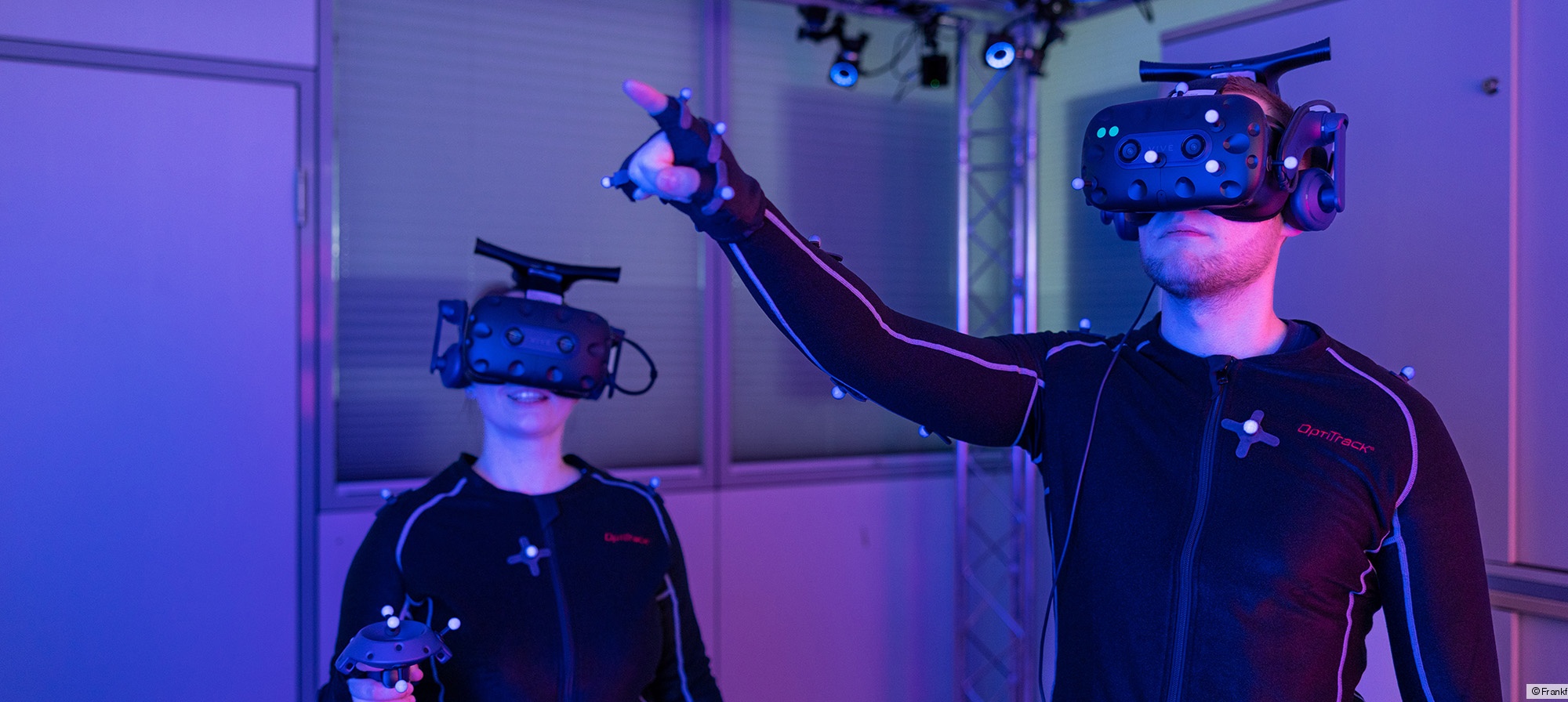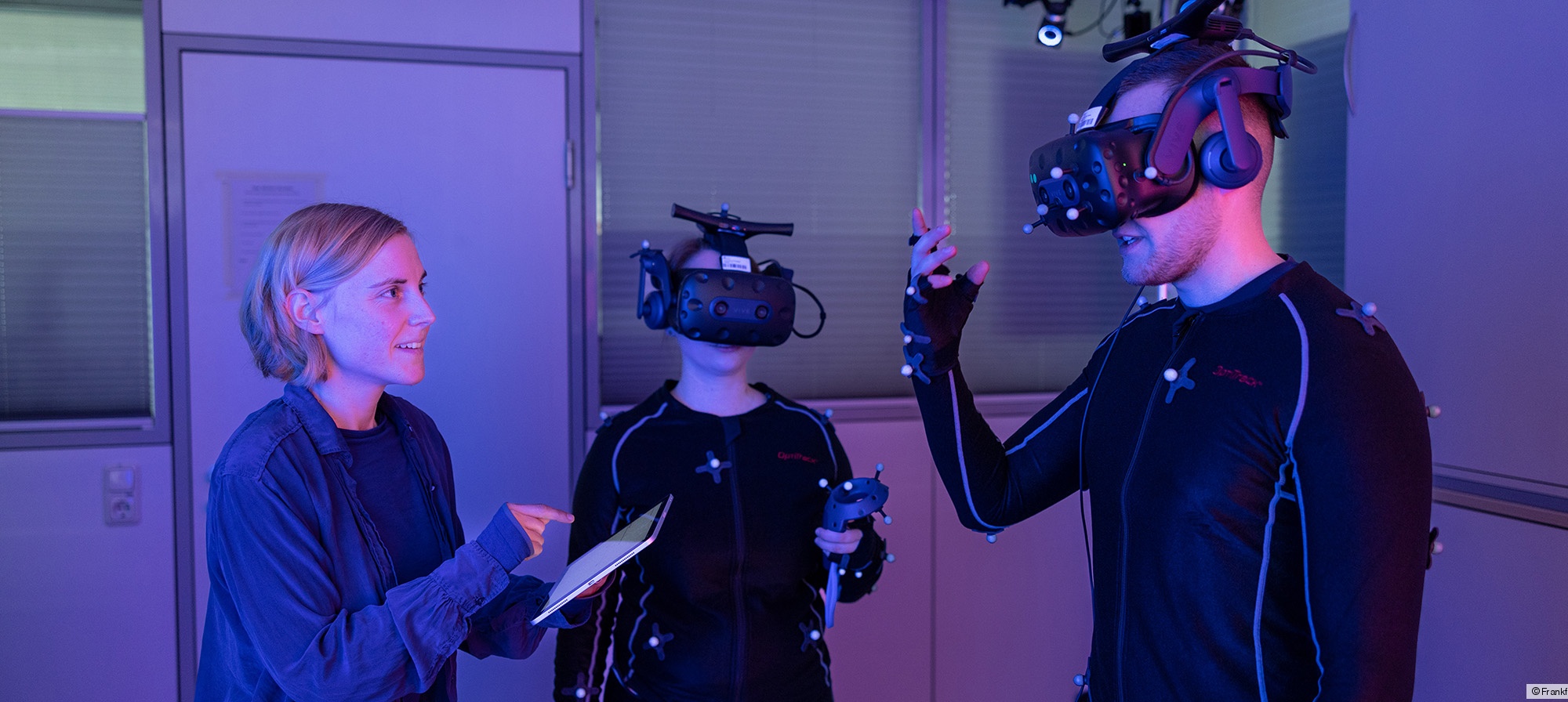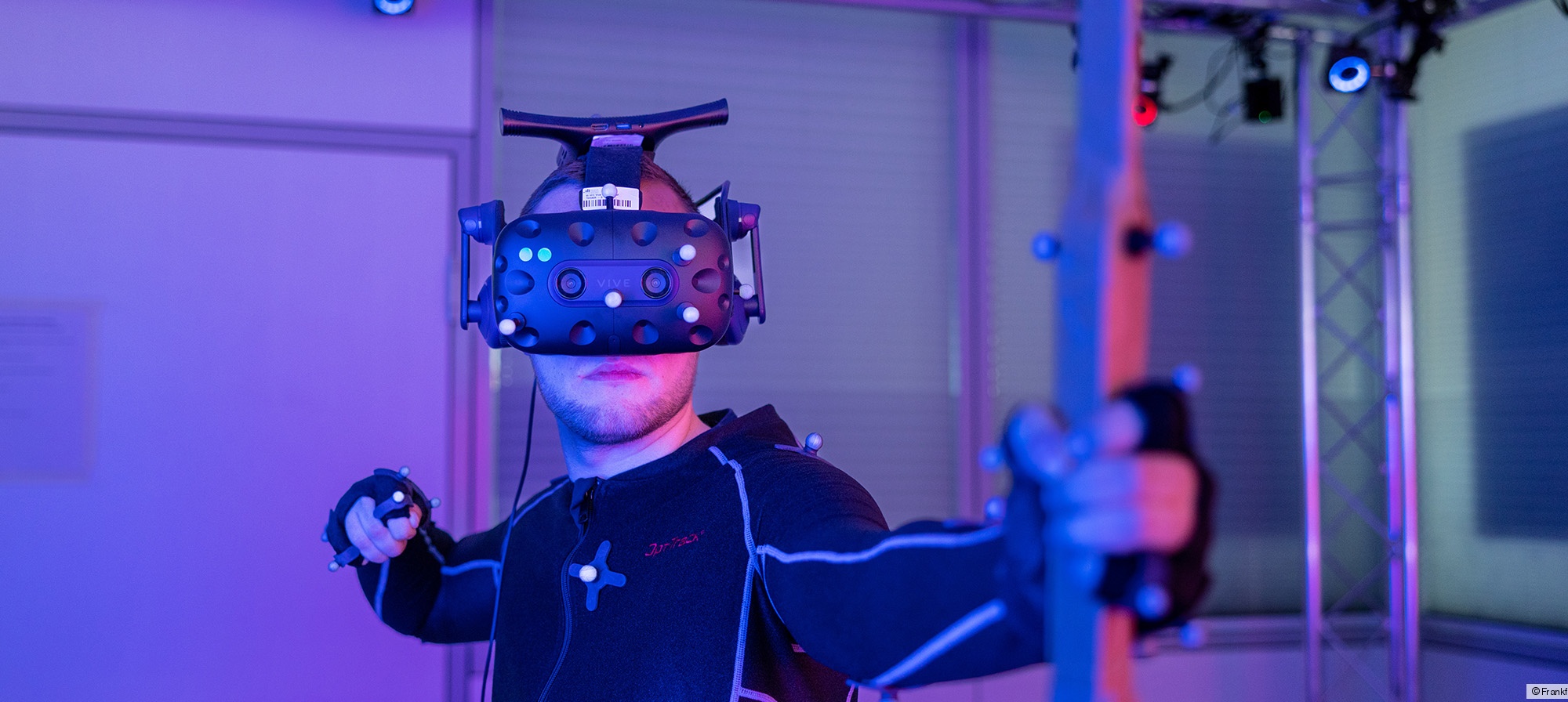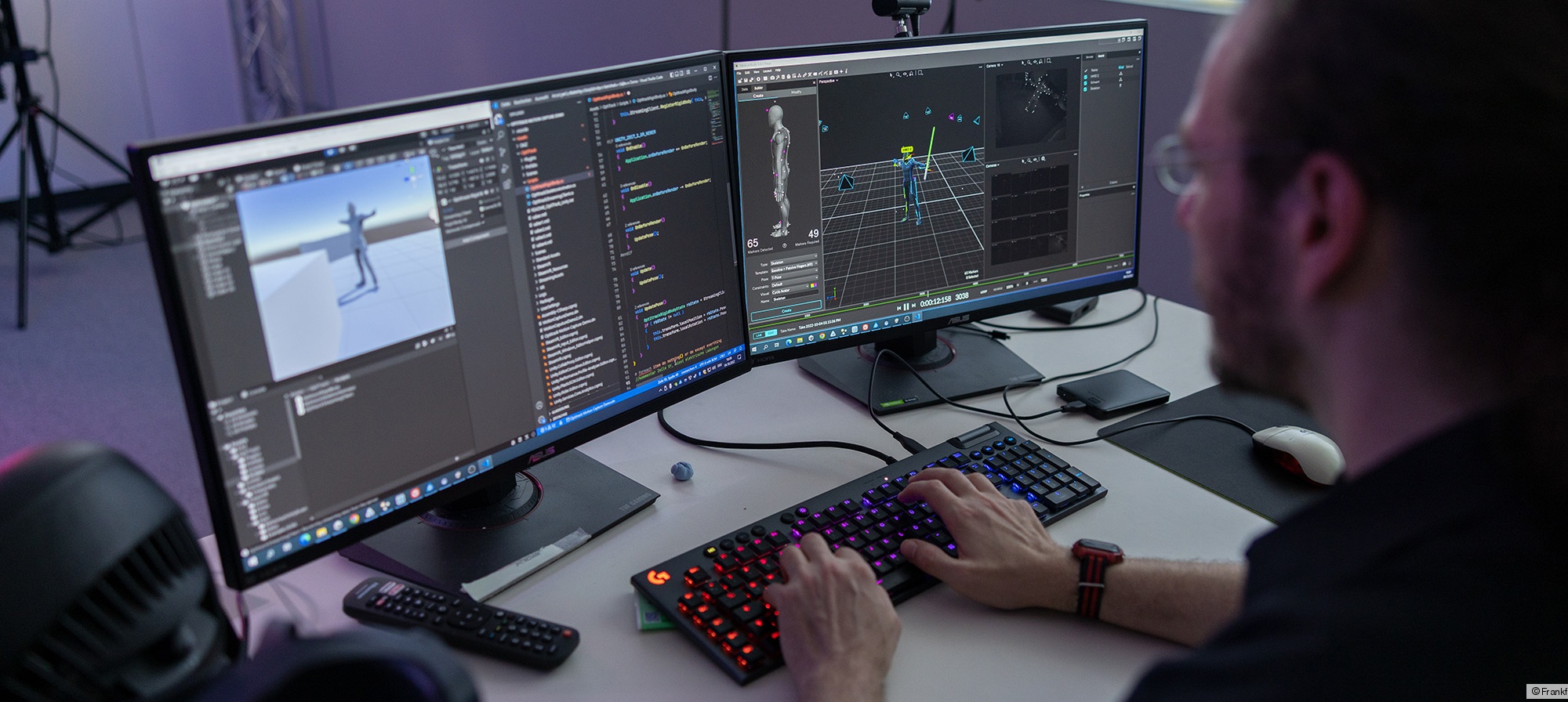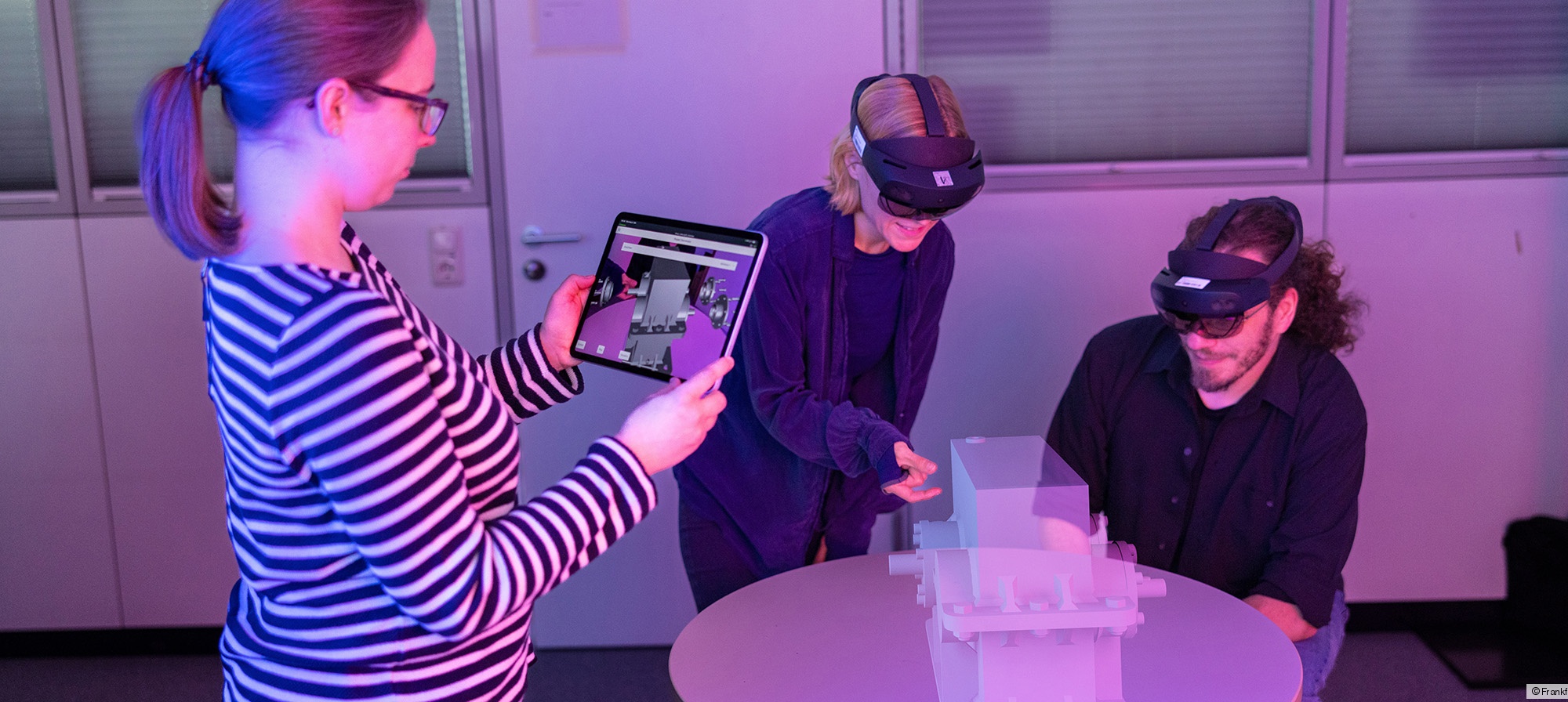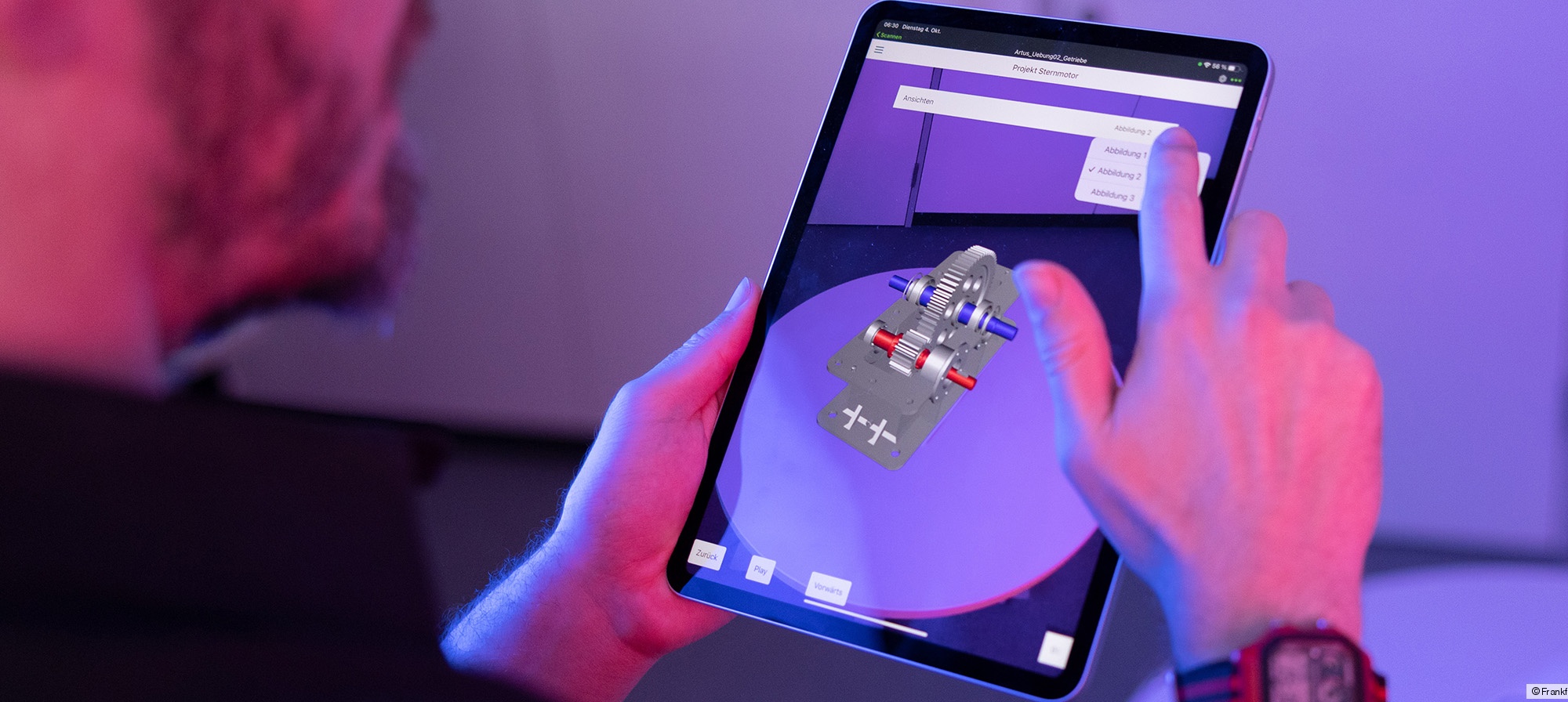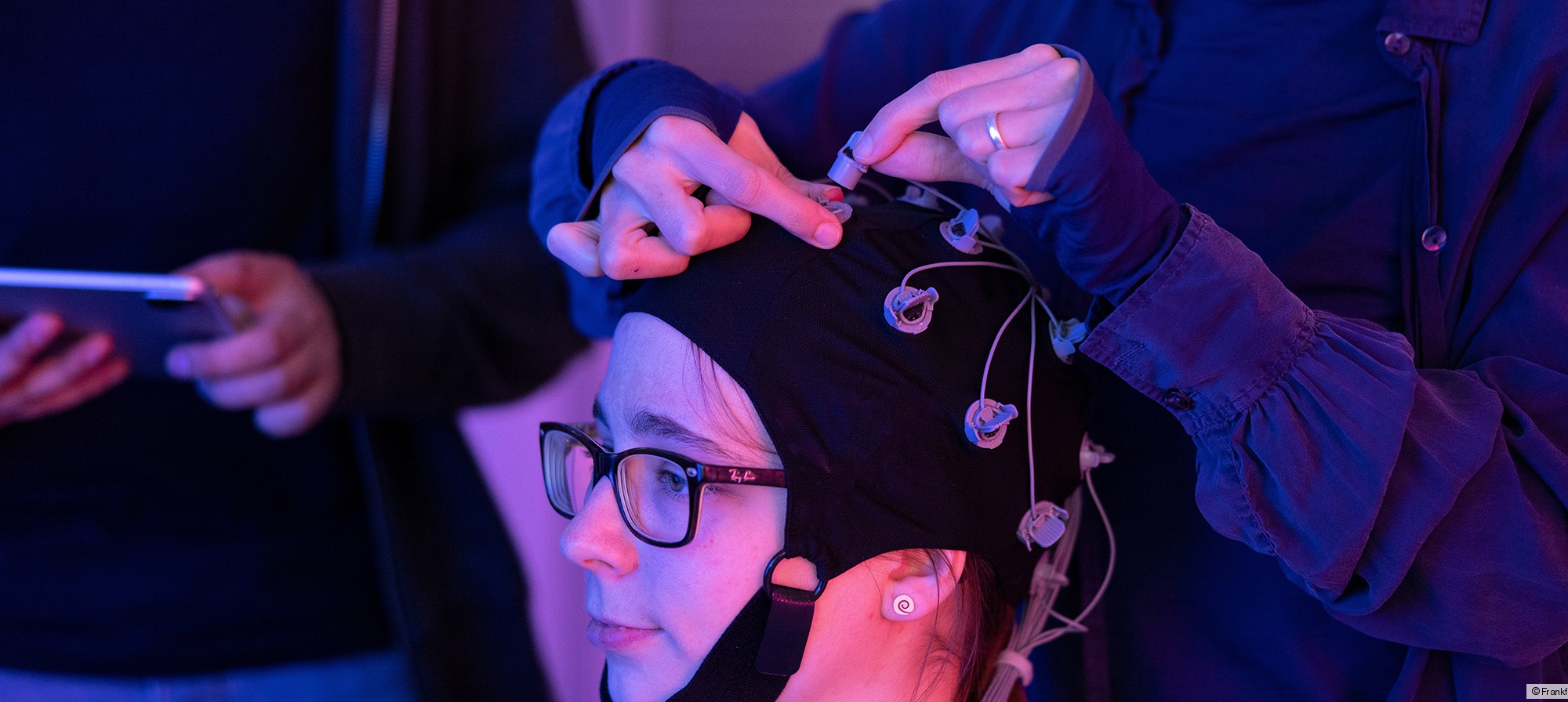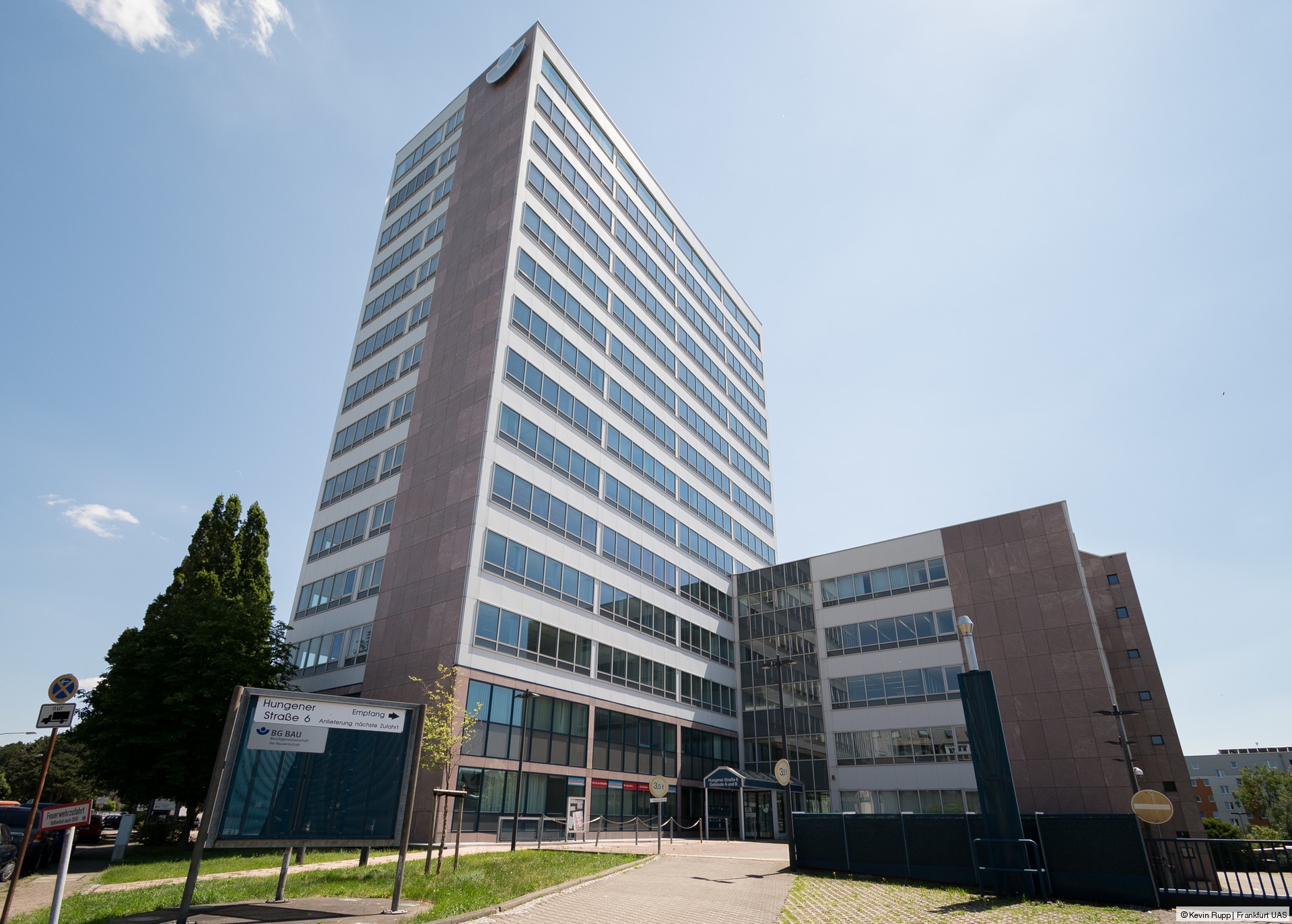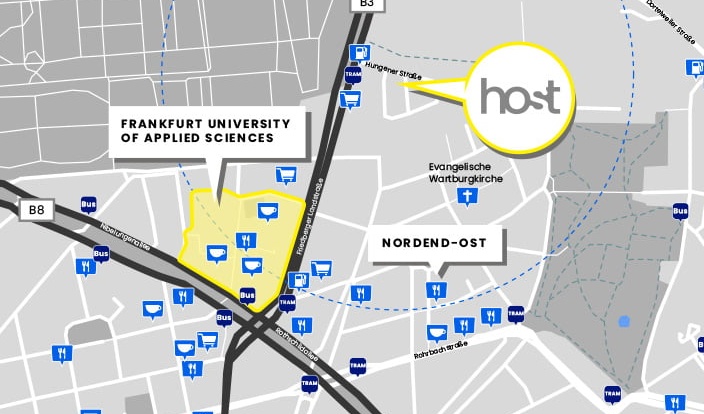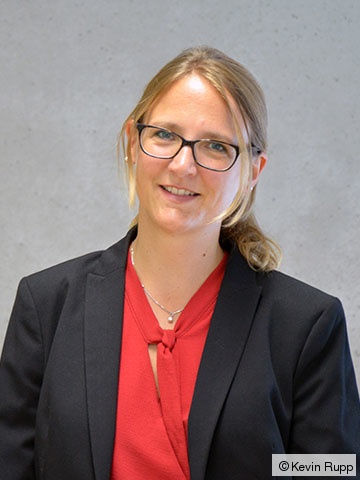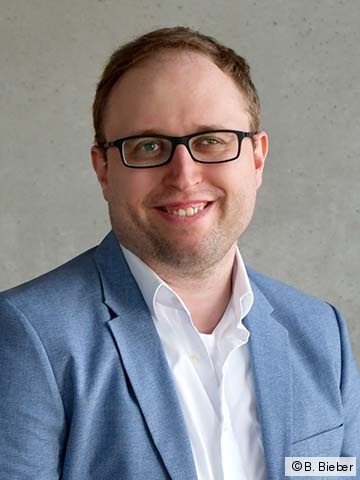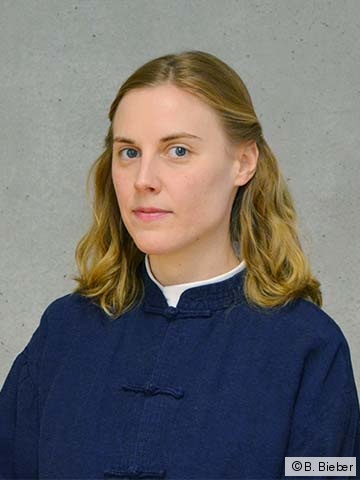Welcome to the Mixed Reality Lab
Human-centered research in immersive spaces
In our new mixed reality laboratory in the House of Science and Transfer (HoST), computer scientists, engineers and product developers jointly develop and investigate innovative and immersive applications using the latest virtual and augmented reality technologies .
In the mixed reality lab, our doctoral students research together with students as part of project work and theses. The laboratory is at the center of several research projects at Faculty 2 of the Frankfurt University of Applied Sciences.
Together with experts from industry and research, we develop and evaluate virtual prototypes and applications of modern product development. The most modern mixed reality systems are available in our laboratory. Many of our developments are created together with the students of the Frankfurt University of Applied Sciences.
Research in Immersive Spaces
Focus of our research in the laboratory is on the multimodal expansion of VR/AR systems with additional sensors for tracking physiological signals and biomechanical processes (motion tracking). In addition to questions of human-computer interaction, our research in the laboratory also focuses on personalized, bio-medical engineering for virtual products.
New techniques of multimodal interaction and physiological sensor technology are being researched, which enable completely new user experiences and innovative system prototypes and product development methods with virtual and augmented reality.
Projects, Bachelor and Master Theses
We are currently offering bachelor and master topics in the field of mixed reality. For larger and complex problems, we offer interdisciplinary projects and cross-departmental research projects. Contact us!
Cooperations
We actively promote cooperations with partners from the field. If you are interested in the topics of human-centered mixed reality applications and virtual product development, we are at your disposal.
The mixed reality lab is used for project work in the modules, among other things
- Interdisciplinary Project (IPR)
- Virtual Product Development (VPD)
- Human-Computer Interaction (HCI)
- Human-Machine Interaction (HMI)
- Computer graphics
The laboratory is available for doctoral candidates and students for project work and theses. Students are mostly (but not exclusively) from the courses
- Computer Science (Bachelor)
- General Computer Science (Master)
- Inclusive Design (Masters)
- High Integrity Systems (Master)
- Business Informatics (formerly EBIS/ÌBIS) (Bachelor)
- Product Development and Technical Design (Bachelor)
- Mechanical Engineering (Bachelor & Master)
The lab also serves as a research and testing playground for educators interested in exploring the potential of AR/VR applications or developing and testing their own content. Special devices provide virtual reality environments and augmented reality environments to explore the topics of Industry 4.0, IoT and questions of work ergonomics.
The equipment of the mixed reality laboratory includes the latest sensor and display technologies:
- Immersive, high-resolution VR displays including HTC Vive Pro 2, HTC Vive Pro, Meta Quest, HP Reverb, Lenovo Explorer, Microsoft HoloLens 1/2
- Room-filling motion-capturing system OptiTrack with 16 Prime 13W cameras for single and multi-user full-body capture
- Marker-based and markerless systems for face, finger and object detection
- Brain-Computer Interfaces (EEG, OpenBCI)
- Bioplux physiological sensors (EMG, GSR, ECG, HR, HRV,...)
- Networked workstations and various access points for high-speed data transmission and connection to the university network
- Software including Unity Pro, Vuforia and the latest AR toolkits
Away from the laboratory, the HoST provides researchers with additional work and development rooms in the co-working space.
In general, research is carried out in the mixed reality laboratory:
- Evaluation and interaction methods for virtual and augmented reality
- Evaluation of prototypes, e.g. in the smart home area and assistive systems
- Virtual product and application development
- Physiological reactions and interactions of users in VR/AR
- Cognitive Systems and Human Activity Recognition
- Simulation of in-situ prototypes
The mixed reality laboratory works together with the interdisciplinary research center FUTURE AGING of the Frankfurt University of Applied Sciences.
For testing and trying out socio-technical solution drafts for an aging society, AR/VR environments based on motion capturing and motion detection for assistive systems, but also the accessibility of MR systems themselves are increasingly the focus of research in the laboratory.
The interdisciplinary research project HYBRID THINKING is also active in the mixed reality laboratory. Here modern mixed reality applications for assistive care systems for therapeutic measures are developed and researched.
Other research topics are the development and testing of assistive technologies and technology-supported services for independent living, living and working - even with functional losses/restrictions.
We are in the:
HoST (House of Science and Transfer)
Room B 02 202
Building Part B, 2. OG
Hungener Straße 6
D-60389 Frankfurt am Main
Germany
Contact
HoST (House of Science and Transfer)
Room B 02 202
Building Part B, 2. OG
Hungener Straße 6
D-60389 Frankfurt am Main
Germany

